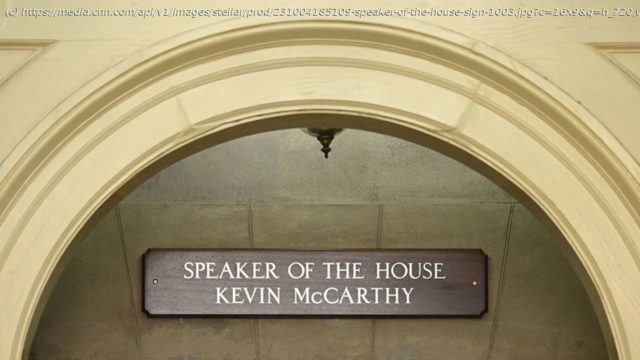Getting rid of Kevin McCarthy didn’t solve anything.
Getting rid of Kevin McCarthy didn’t solve anything.
Whoever succeeds the former House speaker will need to defuse the hazardous and self-defeating political forces inside the Republican conference that made McCarthy’s tenure, in a job he’d sought for years, so abbreviated.
Two candidates, GOP Majority Leader Steve Scalise of Louisiana and Judiciary Chairman Jim Jordan of Ohio, have already launched campaigns. Rep. Kevin Hern of Oklahoma is gauging support for a possible run for leadership and others may also jump in. A new speaker with a fresh start may be better positioned than McCarthy, who was battered by years of battles as minority leader, to bring the party together. But unless the eventual new speaker addresses the intractable root causes of McCarthy’s downfall, their time in the speaker’s chair may be as short-lived as his was.
And the new speaker will face a massive test within weeks of taking office – and the same tough dilemmas that felled McCarthy – when the short-term funding bill that was the former speaker’s last act expires next month and the government is again in danger of shutting down.
The next person to wield what turned out to be a poisoned gavel for the Californian will surely try to change how the Republican majority works to avoid also dooming their own speakership from the start. Any candidate would be unwise to repeat the concession McCarthy made to hardliners as a last resort in 15 rounds of balloting for the job earlier this year, which allowed a single member of the House to file a motion to oust him.
Florida Rep. Matt Gaetz, McCarthy’s chief tormentor, wielded the possibility of a so-called motion to vacate over McCarthy’s head for weeks and showed why previous speakers, including Democrat Nancy Pelosi, always resisted making the concession that McCarthy did.
One of McCarthy’s top allies, Rep. Garret Graves of Louisiana, told CNN’s Jake Tapper on Wednesday that leaving a speaker under the constant threat of being dismissed by his own party would be detrimental to the national interest.
“We don’t subject the president or the vice president to that type of low threshold. The United States needs to have more stability than we saw yesterday,” Graves said.
The force that repeatedly confounds GOP speakers
But the political storm that swept McCarthy away was not simply the product of his own missteps, ill-advised concessions to hardliners or even the riotous nature of the Republican Party in the era of Donald Trump, in which there are often stronger incentives for members to perform stunt politics to catch the eye of producers on right-wing TV shows than there are to actually pursue conservative policies.
The next speaker will have to find a way to deal with those in the GOP who set themselves up as the true arbiters of conservatism and prioritize disruption and confrontation over governance. Many of these members come from deep red districts that are often gerrymandered to head off competitive general elections, so their only real electoral threat may come from more extreme members of their party in a primary.
The outgoing speaker implicitly referred to his own, and his party’s, failure to so far show voters that they can effectively run the country ahead of the 2024 election in his farewell news conference just after he was ousted on Tuesday night.






